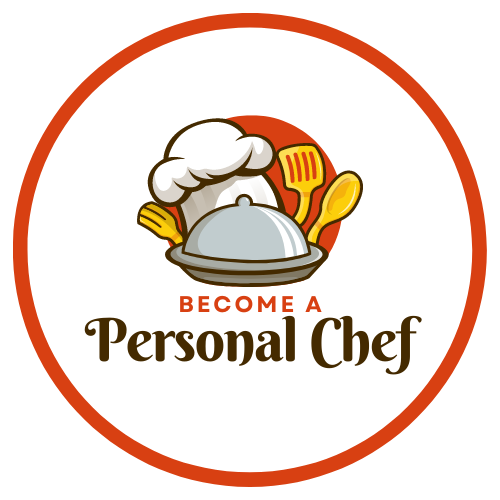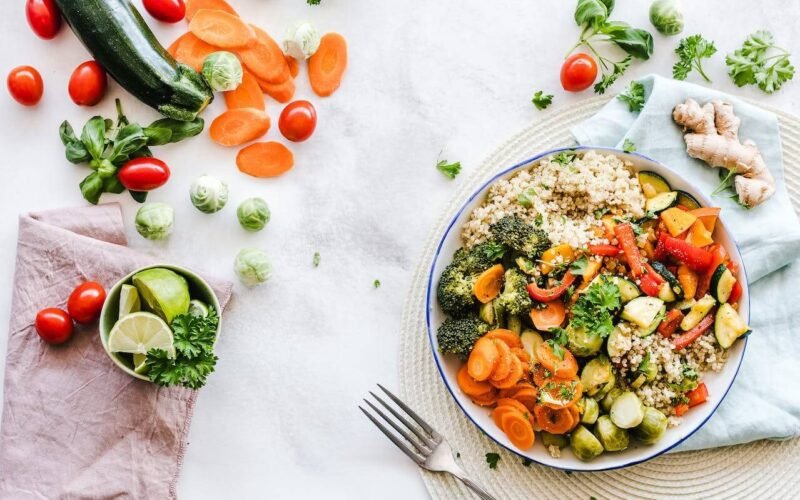Table of Contents
ToggleVegan Food For Personal Chefs
Welcome to the world of vegan cooking! This comprehensive guide aims to assist those considering a career as a personal chef, particularly focusing on plant-based diets. Whether you’re a seasoned chef looking to expand your culinary skills or someone with a passion for healthy, sustainable eating, this guide will provide valuable insights and resources.
The demand for vegan personal chefs has been rising steadily over the years, as more and more people are adopting plant-based diets for health, environmental, and ethical reasons. This trend is not limited to just home kitchens, but also in restaurants and other food service industries. As a personal chef specializing in vegan cuisine, you have the opportunity to tap into this growing market and make a difference in people’s lives.
So what exactly does it mean to be a vegan personal chef? It means creating delicious meals that are free from animal products such as meat, dairy, eggs, and honey. It also means using sustainable and organic ingredients whenever possible, to promote not only personal health but also the health of our planet.
As a vegan personal chef, your role is not only limited to cooking meals for clients. You also have the opportunity to educate them on the benefits of a plant-based diet and how it can positively impact their health and the environment. This could include providing resources such as meal plans, nutritional information, and tips for grocery shopping and meal prep.
One of the biggest challenges faced by individuals transitioning to a vegan lifestyle is knowing what foods to eat and how to prepare them. This is where your expertise comes in handy. As a trained chef, you can introduce clients to new and exciting plant-based dishes that they may have never tried before. You can also teach them how to properly balance their meals to ensure they are getting all the necessary nutrients for a healthy and sustainable lifestyle.
Incorporating special diets into your services is not just about cooking—it’s about enhancing your clients’ quality of life through your culinary expertise. It may seem like a daunting task, but the rewards are immense. Read the giant list of special diets for personal chefs. Your next client might need your help!
What is Veganism?
Veganism is more than just a diet; it’s a lifestyle choice that involves abstaining from the use of animal products in food, clothing, or any other purpose. This means no meat, dairy, eggs, or honey in your food and no leather, wool, or silk in your clothes.
The reasons for adopting a vegan lifestyle vary from person to person. Some choose it for health reasons or environmental concerns, while others do so for ethical reasons, believing that all creatures have a right to life and freedom.
Why Veganism?
Veganism is gaining popularity for various reasons. The plant-based diet is associated with numerous health benefits including lower rates of obesity, heart disease, high blood pressure, and type 2 diabetes.
Additionally, veganism can also help reduce our environmental footprint, as plant-based diets require less energy and water and produce fewer greenhouse gases compared to a meat-based diet.
Essential Vegan Ingredients
As a vegan chef, your pantry will look slightly different than a traditional one. Staples include grains like quinoa, brown rice, and oats; beans and lentils; fruits and vegetables; nuts and seeds; plant-based milk alternatives (like almond, soy, or oat milk); and tofu and tempeh. But there are also a few essential ingredients that may not be as obvious but are key to creating delicious and nutritious vegan dishes. Here are some must-have ingredients for any vegan kitchen:
1. Nutritional Yeast
This deactivated yeast is a staple in vegan cooking, often used to add a cheesy or nutty flavor to dishes like mac and cheese, mashed potatoes, or kale chips. It’s also a great source of vitamin B12, which can be lacking in a plant-based diet.
2. Coconut Oil
Coconut oil has become a popular alternative to butter in baking and cooking due to its neutral taste and high smoke point. It’s also rich in healthy fats and can add a creamy texture to dishes like curries or smoothies.
3. Flaxseeds
Flaxseeds are rich in omega-3 fatty acids, making them a great substitute for eggs in baking. They can also be used as an egg replacement in recipes like pancakes or vegan burgers.
4. Plant-Based Milk
With so many options on the market now, plant-based milk has become a staple in any vegan kitchen. Whether you prefer almond, soy, oat, or coconut milk, these dairy-free alternatives can be used in everything from cereal to coffee to creamy sauces.
5. Tofu
Tofu is a versatile and protein-rich ingredient that can be used in both savory and sweet dishes. It’s often used as a substitute for meat or eggs and can add texture and substance to meals like stir-fries, salads, and even desserts.
Recipe Development and Food Presentation
Creating exciting vegan dishes requires a good understanding of plant-based ingredients and how they can be combined to create nutritious and delicious meals. Consider color, texture, and flavor when developing recipes. For example, a colorful salad with crunchy nuts, soft roasted veggies, and a tangy dressing will hit all the right notes.
Presentation is key in gourmet cooking. Use vibrant foods to add color to your plate, think about the placement of each ingredient, and remember – the first bite is with the eye!
Wondering what tools a personal chef might need? I’ve written an extensive article for you – A Comprehensive List Of Must-Have Tools and Essential Items for the Personal Chef
Making Basic Meals Interesting
Vegan cooking provides an opportunity to get creative in the kitchen. Experiment with spices and herbs, try different cooking methods (like roasting, grilling, or steaming), and don’t be afraid to try new ingredients.
Here are some tips to help you make basic meals more interesting and flavorful:
1. Start with a Flavorful Base
Every great meal starts with a flavorful base. For vegan cooking, this can include vegetable broth, coconut milk, or even water mixed with herbs and spices. This base will infuse your dish with flavor from the very beginning.
2. Use Different Textures
Texture is just as important as flavor when it comes to making basic meals interesting. Consider adding crunchy toppings like toasted nuts or seeds, or using different cooking methods for your vegetables (such as roasting them in the oven for crispy edges).
3. Incorporate Global Flavors
One of the best ways to add excitement to your meals is by incorporating global flavors into your dishes. Experiment with spices and seasonings from different cuisines, such as Indian, Mexican, or Thai. This will not only add new layers of flavor but also introduce you to new ingredients and cooking techniques.
4. Don’t Forget the Herbs
Fresh herbs are a simple yet effective way to add a burst of flavor to any meal. Keep a small herb garden in your kitchen or purchase pre-cut herbs at the grocery store to easily enhance your dishes. Some great options for vegan cooking include cilantro, basil, parsley, and rosemary.
5. Marinate Your Proteins
If you’re using tofu or tempeh as your protein source, consider marinating it before cooking. This will infuse the proteins with flavor and help prevent them from drying out during cooking. Some marinade ideas include a mixture of soy sauce, garlic, and ginger for an Asian-inspired dish or a blend of lemon juice, olive oil, and herbs for a Mediterranean twist.
Ever wondered about the key to a successful personal chef business? Your answers await! Click here and join us as we delve into the essential steps and sophisticated strategies you need to master for a flourishing career as a personal chef. Don’t just dream it, achieve it!
Vegan Staples
Dairy-free ice cream made from coconut milk or bananas and nut-based sauces like cashew cream or almond butter are easy to make and can elevate any meal.
Vegan Food For Personal Chefs
With more people becoming aware of the benefits of a plant-based diet, the demand for vegan foods and chefs who specialize in vegan cuisine is only expected to grow. As a personal chef, catering to this growing market can open up exciting opportunities.
Remember, the key to successful vegan cooking is creativity, experimentation, and passion. Happy cooking!
Here are some of my favorite tools for providing my personal chef service
As an experienced personal chef, I’ve found that the secret to creating mouthwatering dishes goes beyond just having a passion for food. It’s also about using the right kitchen tools. Today, I’m going to share with you my must-have kitchen items that help me bring my culinary creations to life.
1. Chef’s Knife
The first item on my list is a high-quality chef’s knife. It’s the most versatile tool in my kitchen, perfect for chopping, slicing, and dicing. My preference is for a Global Chef’s Knife, known for the edge and the way they are balanced.
2. Cast Iron Skillet
Next up is a good old cast-iron skillet. From searing steaks to baking cornbread, this pan does it all. I love the Lodge Cast Iron Skillet, which retains heat beautifully and adds a nice crust to anything you cook.
3. Stainless Steel Pots and Pans
A set of stainless steel pots and pans is essential for a variety of cooking techniques. They’re great for simmering, boiling, and sautéing. All-Clad’s Stainless Steel Cookware Set is my go-to choice for its exceptional performance and durability.
4. Immersion Blender
An immersion blender makes pureeing soups, making smoothies, and blending sauces a breeze. I suggest the Braun Multiquick Hand Blender, which is powerful, easy-to-clean, and highly versatile.
5. Digital Thermometer
To ensure perfectly cooked meats every time, a digital thermometer is a must. The ThermoPro TP19 Waterproof Digital Meat Thermometer provides speedy and accurate readings, ensuring your roast chicken or prime rib is cooked to perfection.
6. Silicone Spatula
A silicone spatula is a chef’s best friend for its versatility. It’s heat-resistant, non-stick, and perfect for everything from folding batter to stirring sauces. I recommend the OXO Good Grips Silicone Spatula.
7. Stand Mixer
Lastly, for avid bakers, a stand mixer is a game-changer. The KitchenAid Artisan Series 5-Qt. Stand Mixer isn’t just a pretty face; it makes mixing doughs and batters effortless.
These are the tools that I use daily in my personal chef service. Remember, quality tools make a difference, but they don’t have to break the bank. Start with the basics and add on as you grow more comfortable and adventurous in the kitchen.
Happy cooking!

